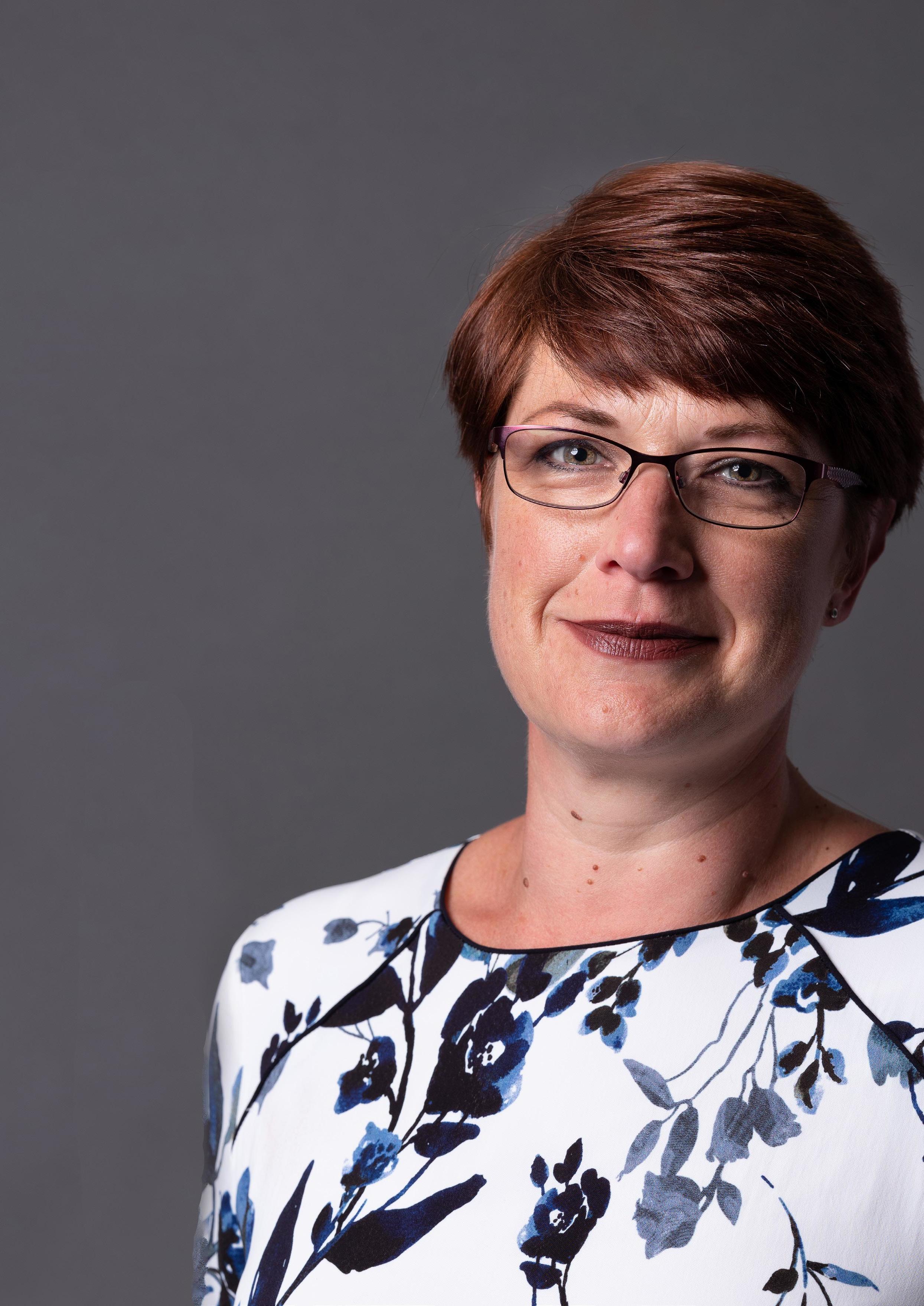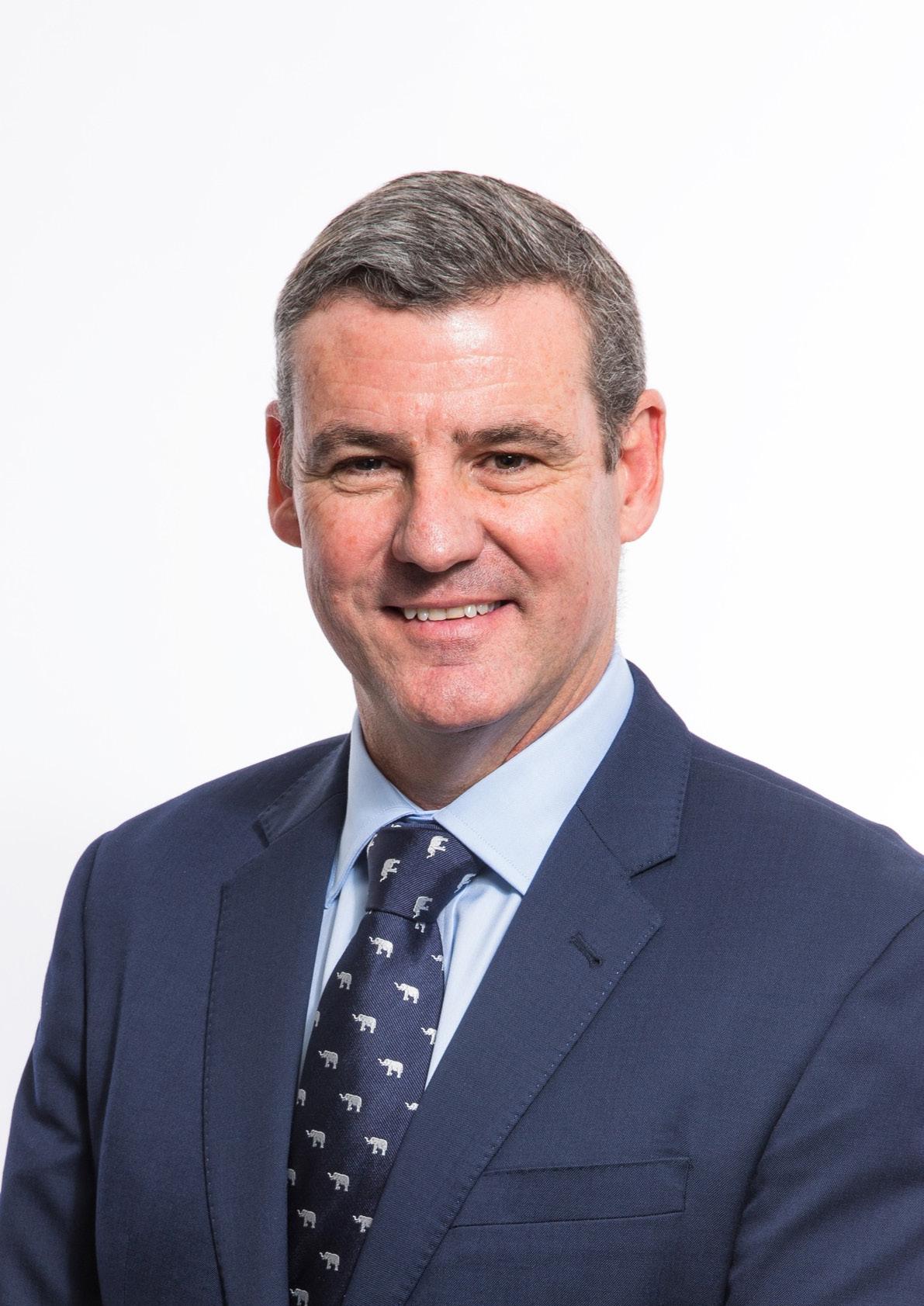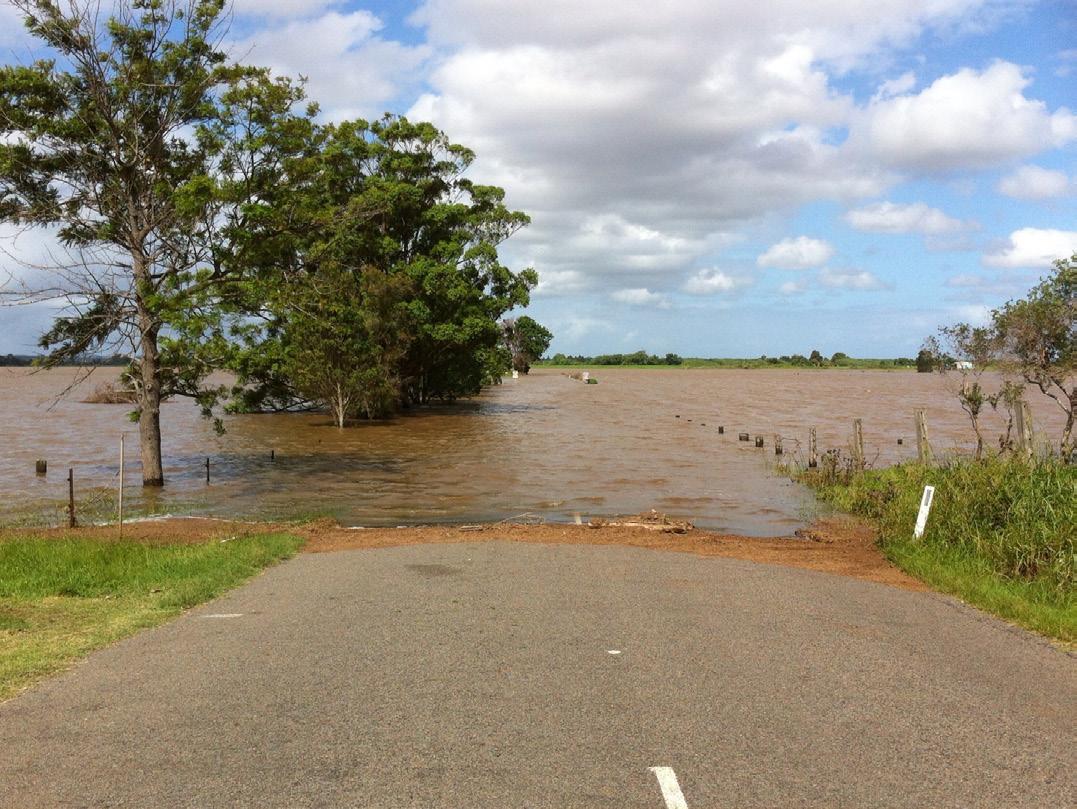
10 minute read
Suncorp makes $100,000 donation to Shine
Suncorp New Zealand is helping children affected by domestic violence stay connected with their schools and online learning through a oneoff $100,000 donation to the domestic violence charity, Shine.
Suncorp New Zealand has supported Shine as a community partner for the past two years and recognised that during the Covid-19 level 4 lockdown there was increased need for education support for children impacted by domestic violence, particularly those in emergency accommodation.
“With New Zealand children now reliant on virtual learning we knew it was important for students who’d experienced family harm to stay connected to the outside world and their learning,” said chief executive Paul Smeaton.
“Domestic violence incidents have unfortunately increased during the lockdown. Everybody deserves to be safe and feel safe in their own home. We hope our contribution helps lessen the burden for children in these situations.”
The $100,000 donation is in addition to more than $100,000 of support Suncorp and its people has already provided to Shine over the past two years and will give families access to digital devices and one-on-one support through the KIDshine programme.
NEW CHIEF EXECUTIVE STEERING IBANZ TOWARDS INSURANCE FUTURE
Melanie Gorham took the role two days before New Zealand shifted to level 4 lockdown. But that may actually have helped her hit the ground running.
If you were choosing a time to start a new job, two days before New Zealand went into unprecedented lockdown in response to a global pandemic might not be it.
But new IBANZ chief executive Melanie Gorham is upbeat and positive about the challenges she’s been thrown into the middle of as she replaces retiring chief executive Gary Young.
She said the experience of starting a new job on March 23 was not as bad as you might expect, and even provided some benefits.
While there have been long days from the home office, Gorham said she had been able to get a deeper understanding of the new organisation and what would be required in the coming months.
Faced with the sort of economic challenge that New Zealand had not encountered before, Gorham said there would be an inevitable impact on the insurance industry as a result of Covid-19.
But as long as the industry navigated it well and continued to cement its relationships with clients and customers, it should come out of it in good shape, she said. “Many have been through things like the GFC but didn't have the far-reaching impacts this is likely to have.”
If the effect was short and sharp the focus could return on rebuilding and getting back to the new business as usual, she said. Balancing the social, economic and health impacts of the outbreak was a challenge, she said, but something that needed more attention paid to it as the country moved further through its response.
While it would be tough, Gorham said she could see there would be the chance for businesses to flourish in the rebuilding phase. “There’s always opportunities. but for many it will mean changing in some way. As we have sadly already seen some businesses will fail whilst others will evolve because of what they have been through and learned.”
Prior to being approached about replacing Young, Gorham was QBE’s head of claims NZPAC. It was a varied role which included leadership of the NZ claims operations and oversight of those in Fiji, Papua New Guinea, French Polynesia, New Caledonia, Vanuatu and Solomon Islands, QBE having recently integrated these countries into the NZPAC region.
Gorham said she had reached a point at QBE where it was time for a new challenge and a fresh perspective. Former general manager Bill Donovan heard she was moving on and asked whether she would be interested.

“I like the idea of more focus back on the broking side.”
Working at IBANZ would mean connecting back into the advice world, but removed from the client relationship, she said. “When you’re broking there’s a duty you owe to clients and I always took that very seriously. It’s great to keep my hand in with broking but with more distance between you and the client.”
Gorham has worked in insurance for almost all of her career, including as a broker for Marsh. She said her career success had been driven by being able to build strong, collaborative relationships with colleagues, clients and suppliers and deploying sound analysis and negotiation skills.
Insurance offered a wide variety of experiences as a career, Gorham said.
It often provided the opportunity to think about things from a different perspective, she said. Working on infrastructure projects such as roading allowed her to develop a good understanding of a sector she might not otherwise have been exposed to, for example. “I’ve got to meet a remarkable array of people… it’s just incredibly interesting. Everyone buys insurance for all different reasons.”
While she had managed a New Zealand based team of 47 at QBE, the IBANZ team is a much smaller one. Gorham said she liked the make-up of the board and knew many of the broker members well. “It’s a diverse board, with good representation from local brokers and bigger corporates. A lot of them I have worked with or know of from previous roles.”
While the industry is going through a significant period of legislative change, Gorham said the idea of getting into the “nitty gritty” of making submissions and fighting for better outcomes for the broking world and its clients was appealing. “As odd as that sounds. I find it interesting, albeit a bit challenging and frustrating.”
Gorham said there were positives out of the new regime for financial advisers and insurance brokers, but there was a need for the Government to have a fuller understanding of the industry, particularly how the fire and general insurance side worked and how it was different to life insurance.
“They’ve taken what they’ve seen on the life side and applied the same logic but it’s so different. There are improvements that can be made for everyone. We would all be best served if the Government took on board what everyone had to say.”
The Conduct of Financial Institutions bill, which is progressing through Parliament was somewhat at odds with the Financial Services Legislation Amendment Act rules, which come into effect next year. “There’s a lot to work through there, a lot yet to be discussed, including disclosure requirements.”
There was increasing focus on the social responsibilities of

the insurance industry, Gorham said. “If I think back to five or ten years ago, businesses needed to look after clients but that balance of social responsibility was not at the forefront like it is now.
“I feel like [the industry] has come a heck of a long way in 30 years but it needed to improve.”
Young's last few years were inevitably focussed on keeping up with the significant amount of legislative and regulatory changes and this would remain so Gorham said. She also said she is keen to continue discussions with a cross section of IBANZ members to understand what else they thought was important for the association to concentrate on, balancing both would be a challenge for the future.

INSURERS STEP UP IN TIME OF CRISIS
Suncorp New Zealand’s chief executive Paul Smeaton has been elected president of the Insurance Council of New Zealand. caught up with him to ask what might lie ahead for the industry.
What do you think the big challenges are for insurers right now? Supporting vulnerable customers is front and centre for all of us right now. The economic and health challenges that have unfolded as a result of Covid-19 are unprecedented. I’m proud of the way the insurance sector has supported New Zealanders. From the outset, the Insurance Council has worked closely with insurers, Government and the public to help raise awareness of the help available, and how insurance can contribute to financial resilience. How do you feel about FSLAA? What will it change for the general insurance world? Ultimately, the legislation will help deliver better outcomes for New Zealanders. The changes will raise standards, increase transparency and support customers to make informed decisions. I’m confident insurers will respond positively to the change. The general insurance sector already has a strong focus on self-regulation. The Fair Insurance Code is followed by all Insurance Council member companies and has recently been revised to improve accessibility and understanding of insurance.

Where are the opportunities for insurers right now? Economic crises have a habit of putting financial resilience in the spotlight. Significant effort’s going into helping New Zealanders under financial pressure maintain their insurance. If we continue doing this well, insurers will come out the other side of Covid-19 with stronger reputations and greater understanding of the part we play in maintaining the economic wellbeing of our customers and their businesses. Being there in person has been central to how many insurers work with their customers, but the lockdown has meant working differently for our assessors, brokers and advisers. We’ve tried some new things, such as using drones to remotely assess claims, and the challenge now is to take the things we’ve learned during this time and integrate them into our new ways of working.
What are the biggest challenges? There’s no playbook for life in a post-Covid-19 world. Every insurer is dealing with uncertainty around the direction of the economy, where unemployment might head and what that means for New Zealand’s GDP. At Suncorp, we’re putting our effort into ensuring we’ve got an agile and sustainable business that can pivot and respond to new opportunities as they emerge. Is the Insurance Council as effective as it should be in its role in the industry? Is there anything it could be doing better? Events like Covid-19 have shown how important the council is in helping New Zealanders understand their insurance, and the support available for those experiencing hardship. The council also plays a key role in helping members understand what regulatory change means for operational practice. Looking ahead, I think there’s opportunity for insurers to build on consumer awareness about insurance through the support they offer customers. Why do you value your involvement with ICNZ? I’ve been on the council’s Board for five years now. I’m there because I value the diversity of thought around the table. Every major general insurer is there, from the likes of AIG, Tower, IAG and Suncorp, through to FMG, the Medical Assurance Society, reinsurer Swiss Re and specialist providers like Chubb, Hollard and AA Insurance. The council provides a very effective industry voice into government and regulatory discussions, and it does some outstanding financial education work with both young and vulnerable New Zealanders. What are your goals for ICNZ over the next couple of years? I want to help the ICNZ in supporting New Zealanders through the recovery period following lockdown. Helping customers maintain appropriate levels of cover will be important in getting the economy back on its feet. I’m also very interested in helping the ICNZ develop a robust future claims model in partnership with the EQC for earthquake and flood damage. This is vital to ensure customers are appropriately supported in what can be a time of extreme stress.





